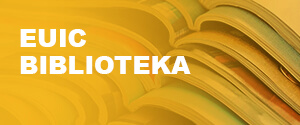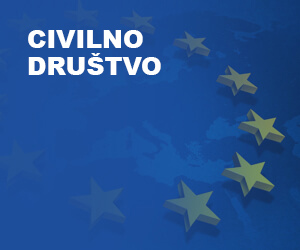What is Erasmus Mundus?
Erasmus Mundus is a cooperation and mobility programme in the field of higher education launched by the European Commission aimed to promote the European Union as a centre of excellence in learning around the world. It also aims to increase the interest of students from third countries to study at universities in the EU. The European Council in 2006 decided to increase the number of scholarships for the Western Balkans in order to improve personal contacts of the people from this region. As part of the initiative to increase scholarships for the Western Balkans for the academic year 2008/09, 6 million euros from the IPA funds were assigned. A part of the funds is intended for students and teachers of the University of Sarajevo, and a minor part for students and teachers of other BiH universities as well as employees in the public administration sector, public and private companies.
What is Erasmus Mundus External Cooperation Window (EMECW)?
The EMECW is a co-operation and mobility scheme in the area of higher education co-operation.
The European Commission has launched this initiative to strengthen cooperation between higher education institutions outside the EU with EU universities. The aim is to stimulate the exchange of students, researchers and academic staff and to support mobility, especially from non-EU countries to the EU. Consortia for different geographical regions have been formed. Students, researchers and staff from the region can apply to the selected consortia.
Is it required to enclose a certificate of the foreign language proficiency when applying to the programme?
In most cases it is necessary to have the language proficiency (mostly English) confirmed by a certain certificate. This requirement depends on the program which you are applying to. Some colleges do not require to hold the certificate when applying, yet they seek to indicate the date of taking one of the official tests (such as IELTS, TOEFL, etc.). In this case, one will be assigned a certain deadline to submit the relevant certificate. Note that these deadlines are rather short, usually another 30 days. Certainly, when applying make sure to send an inquiry to the contact person listed on the website of the appropriate EMCCs / EMJDs programmes or ask about the subsequent delivery of such a certificate.
Is it necessary to hold a university degree while applying?
Each programme has its own criteria in terms of the requirements for submitting a university degree in the application process. Some master programmes will allow you to apply without completed undergraduate studies and provide you with a reasonable period to submit the certificate of graduation. Note that this term is not long – we are talking about weeks rather than months. In any case, should you not meet this requirement at the time of applying it is best to contact the so-called contact point of the appropriate EMMCs / EMJDs programmes.
The required documents usually include the list of all exams accompanied by academic scores translated into English.
What is a Motivation Letter?
A motivation letter is a component of every scholarship application. Sending out resumes without a motivation letter is considered an incomplete application and reduces your chances in a given application.
A motivation letter contains your personal address to those accountable for the selection of candidates. It aims to introduce the candidate to the selection committee in the best way possible.
How to write a motivation letter?
A motivation letter is a form of a short essay, often no longer than 700-800 words. The best way to put together a motivation letter is to divide its contents into different sections, each corresponding to one part of your CV. The most important areas covered in the motivation include the candidate’s education background, previous scholarships and accomplishments, work experience, and academic and career goals. Other categories that can be considered important when writing a cover letter are volunteer work, research projects and presentations, participation in seminars and conferences, membership in student organizations, language skills and other skills.
At the beginning of the letter it is necessary to introduce the reader to the topic. This is typically done with one or two sentences in which candidates present themselves for the first time highlighting the categories of their CV which are most important for them.
The elaboration part of the letter should be clear and precise. Each section of the cover letter should begin with a sentence introducing the topic. These sentences are an introduction to the paragraph and contain the so-called keywords.
- I have always chosen challenging courses and had an excellent academic record.
- My academic achievement is demonstrated by numerous scholarships I have received both at the high school and university level.
- I have developed strong leadership skills, and know how to interact with a wide variety of other people while working several different jobs…
- I have done a fair amount of community service including…
- My independent research projects have strengthened my skills in laboratory work and developed in me an eye for details.
- Tutoring has taught me to work diplomatically and successfully with a wide variety of students.
- Summer school abroad has played a large role in shaping my view of others and of cultural differences.
All the information in the letter have to be specific. Put differently, there has to be a reason why the candidate notifies about any experience or his / her future plans. If the candidate writes about internship at the bank, then it has to be substantiated with why it is important, for example. while working at a bank, I gained experience, work habits, and an insight in the operation mode of large enterprises.
Then, candidates should note their qualities together with justifications. The listed qualities and accomplishments have to be substantiated.
Finally, the cover letter should be concluded with a sentence which is a synthesis of all the written and which re-emphasizes the most important qualities of the candidate.
Also, it is essential to pay attention to the style of writing. The writer must be careful to avoid exaggeration and cliches. Sentences should not be too long because it is confusing for the reader. The form should be clear and specific with clearly divided sections. One should not forget the technical side of the motivation letter, i.e. spelling, grammar and punctuation must be correct.
Depending on the requirements, it is necessary to distinguish letters and essays. If the application requires the submission of a letter then the attention is to be drawn to the form – prior to the introductory part it is necessary to appropriately address the reader, for example. Dear Mr / Ms, and sign off on the letter by an end phrase, for example, Sincerely, Faithfully and the like. One should sign the letter as well. If you are required to apply with an essay, then none of the aforementioned is necessary.
What should a motivation letter consist of to have a successful application?
A motivation letter introduces readers to the candidates’ qualities. In each application process, the following are the most valuable qualities in candidates:
- Sound knowledge of a given field they are applying for,
- Motivation, enthusiasm and earnest interest,
- Creativity and originality,
- Problem-solving skills and ability to adapt to changes,
- Ability to implement plans and successfully present research projects or theses,
- Writing and expression skills; harmony of thought and wording,
- Maturity, emotional stability and ability to successfully deal with stress and challenges,
- Teamwork and leadership skills,
- Ability to adapt, independence and proactivity,
- Responsibility,
- Commitment to academic and career goals, and healthy desire for success.
Finally, candidates should seek to present their qualities in the motivation letter and therefore persuade the selection committee that he / she is the right person for the application. These qualities are required and the prospective candidates have to find a way to present themselves accordingly, but it should not be done in an exaggerated or pretentious manner.


